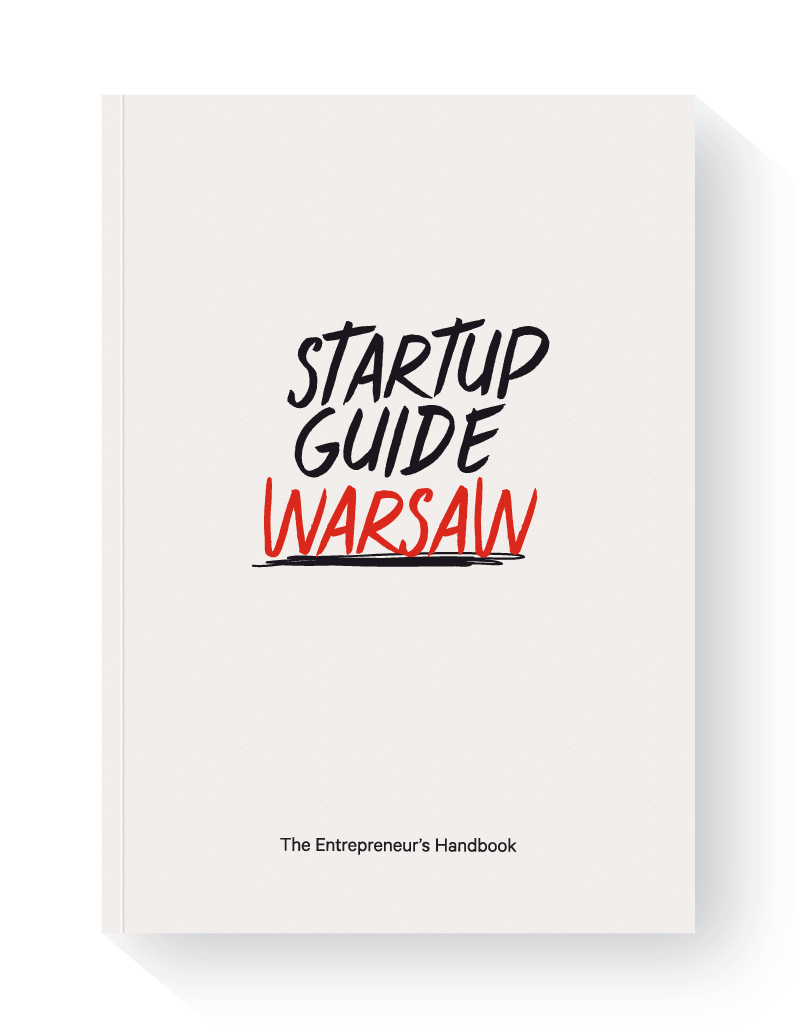Broadening the horizons of high-tech startups
ith over fifteen years’ experience developing export, entrepreneurship and commercial sectors at Google, Michał Kramarz knows exactly what it takes to succeed internationally. As head of the tech company’s startup initiatives in Central Europe, it’s his responsibility to make sure alumni are equipped with everything they need to go out and conquer the world.

Head of Google for Startups, Central Europe, Michał Kramarz. Photo: Startup Guide
Poland is one of the most dynamic startup ecosystems in the CEE region. Compared to other European hubs, it’s particularly rich in high-tech startups. This is thanks to a combination of high-quality education and competitive salaries, which make it a great place to hire top talent. “B2B SaaS is in this region’s blood,” says Michał. He believes this is down to, ironically, a historical lack of investment: B2C tech solutions tend to require significant upfront investment to drive large-scale user acquisition. B2B business models, however, can often scale more slowly with fewer resources once they manage to secure their first few corporate customers.
With over half a billion dollars invested in startups in 2020, Poland is rapidly catching up to other countries and attracting growing interest from overseas. Now, says Michał, Polish startups need to step up and take their place on the international stage. “Here, the size of the market is both an opportunity and a threat. It’s one of the bigger markets in Europe, but medium-sized compared to the rest of the world. So if you want to go big, you need to look outside of Poland.” The CEE region is also home to a wide range of verticals, with gamedev, healthtech, ecommerce and edutech all current hotbeds of activity. “All the things the pandemic accelerated, basically. So, you can find every kind of startup and tech here, but there’s space for more. At the same time, the size of each specific market is relatively small, so you need to think big to grow the business. This means building on an international scale from the beginning.”
To help startups do this, Google assigns specialized in-house and industry experts as mentors in its Google for Startups Accelerator program. They are there to address the specific issues faced by each fledgling company. The whole C-level team is encouraged to participate: CTOs can learn the latest technologies and polish their product, CMOs can gain knowledge on analytics and user acquisition, while CEOs learn from Google leadership and its unique culture. “The idea is that when they connect all the elements, they have the full set of competencies they need to grow.”
The more diverse your teams are, the better your products will be and the more people they’ll appeal to.
Michał believes diversity of viewpoints is also important for successful product development. “The more diverse your teams are, the better your products will be and the more people they’ll appeal to.” Unfortunately, however, diversity isn’t something the tech world is known for. So, to address the yawning ethnic and gender gap, Google also runs dedicated programs for Black and women founders. “Google for Startups” mission is to level the playing field for founders in different industries, so they can operate from Warsaw or elsewhere in the region as they would in Silicon Valley or other places: by getting access to people, technology and funding.”
More varied viewpoints can also help tech founders corner new markets. While the region has birthed success stories such as DocPlanner, Booksy and CD Projekt Red, Michał believes it could achieve even more if STEAM graduates were able to put perfectionism aside now and again. “In mathematics and physics, for example, you need to be exact about what you’re building – detailed. People are taught this way for years, and when they build solutions, they try to do it that way too. So the quality is always high, but the speed could be faster, even if that meant sometimes sacrificing a bit of the initial quality.”
Despite this, however, Michał believes the CEE region is a great place to be right now. “More and more investment funds are showing interest. So, entrepreneurs should think internationally and attract international investment but operate from here, because the ecosystem is developing very fast.”
Most important tips for startups:
💡 Think big from the beginning. Poland is a medium-sized market by international standards, so if you want to achieve global success, you’ll need to aim for international markets right from the start. Take inspiration from hubs like Israel or Estonia: there, local markets are usually too small to support sustained growth, so startups must set their sights on international growth from day one.
💡 Work the benefits of the CEE ecosystem. Aim for international success, but look to hire and live locally to keep costs down and make the most of your funding.
💡 Build diverse teams. The more varied the input during product ideation and development, the broader your outlook, and the more people you’ll appeal to, which makes it easier to scale internationally.
This article is included in Startup Guide Warsaw, alongside many more expert insights and useful tips. Order your copy now!
Written by Kate Williams
Repackaged by Anastasia Ilcov


